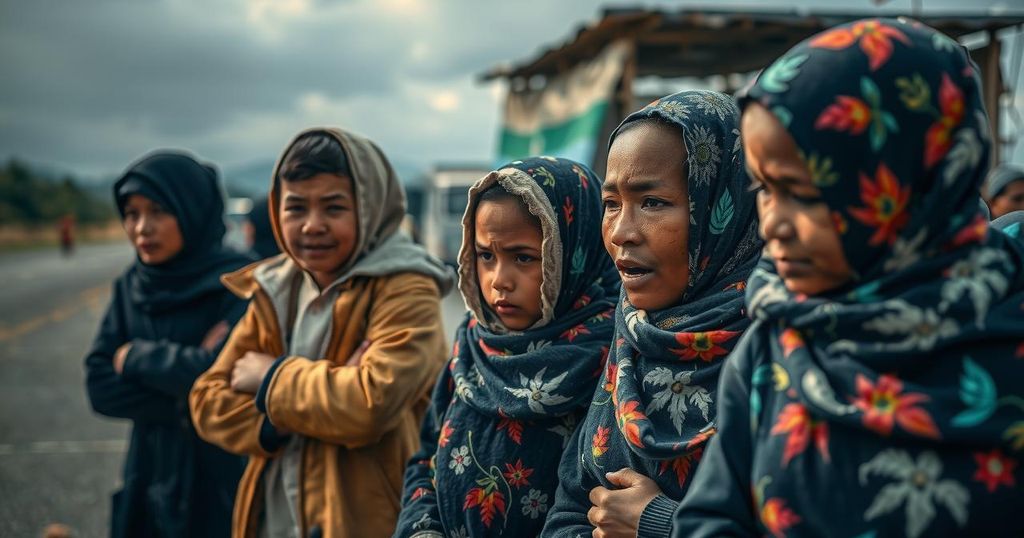The UNHCR reports that 50% of over 120 million displaced individuals are vulnerable to climate change and conflict. Most are in regions severely impacted by environmental hazards, with projections indicating a rise in affected countries from three to 65 by 2040. The agency calls for urgent funding and support to address these crises.
The UN High Commissioner for Refugees (UNHCR) has reported that half of the over 120 million forcibly displaced individuals worldwide are increasingly at risk due to the intertwining crises of climate change and conflict. During the COP29 conference in Baku, the agency noted that a significant percentage of these individuals reside in regions severely impacted by climate change, particularly in countries like Ethiopia, Haiti, Myanmar, Somalia, Sudan, and Syria. As climate-related hazards are projected to escalate in frequency and severity, displaced populations face compounding vulnerabilities without adequate support for adaptation strategies. By 2040, it is anticipated that countries experiencing extreme climate conditions will increase from three to sixty-five, exacerbating the challenges for refugee populations who are already fleeing conflict and instability. The report underscores the urgent need for international assistance, particularly in fragile states, where climate financing remains grossly insufficient. Action must be taken to ensure that financing reaches these specific communities in need, particularly those enduring both climate crises and the burden of hosting refugees.
The increasing overlap of climate change and conflict has created a severe predicament for displaced populations across the globe. The UNHCR’s report highlights the alarming prospect that the number of nations confronted with extreme climatic disasters will dramatically rise in the coming years, which poses significant challenges for managing refugee and internally displaced populations. Moreover, the dimensions of humanitarian responses are rendered inadequate due to insufficient financing allocation, leading to a stark disparity in resources between fragile and non-fragile states. Understanding this context is essential for grasping the magnitude of the crisis facing both displaced peoples and the communities that welcome them.
In summary, the UNHCR warns that the intersection of climate change and conflict has left millions of displaced individuals stranded in perilous circumstances. Without significant changes in climate financing and supportive measures tailored to these communities, their situations may worsen. As climate crises continue to rise, it is imperative for international communities to recognize their responsibility and respond effectively to mitigate the impact on the world’s most vulnerable populations.
Original Source: www.aa.com.tr






